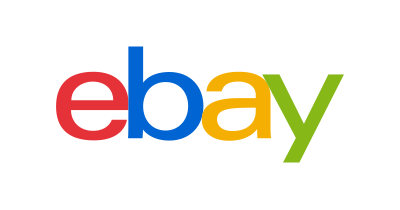Are you looking for a side business to supplement your income?
Selling online can be a great way to make extra cash, and one popular platform for buyers and sellers alike is eBay. But what is eBay, and how does it work?
Don’t worry – we’ve got you covered.
In this blog post, we’ll break down exactly what eBay is, and how you can use this platform to start making money today.

Make Money Selling on eBay!
What is eBay?
eBay is an online marketplace that allows individuals and businesses to buy and sell a wide variety of items. It was founded in 1995 and has grown over the years to become one of the most popular e-commerce platforms in the world.
The eBay marketplace is well-known for its auction-style listings, in which bidders compete to purchase items at the best price, as well as its fixed-price listings, in which sellers can set a specific price for their items.
This sales platform offers a range of benefits to sellers, which is part of the whole draw to the eBay meaning. For one, it provides access to a massive pool of potential buyers – with over 133 million active users worldwide, there’s a good chance that someone will be interested in purchasing your items.
What is eBay Mostly Used For?
One of the great things about eBay is that it offers a wide variety of selling categories, so you can sell almost anything on the platform. So what do people buy on eBay?
Some of the best selling items on eBay include electronics, fashion items, collectibles, and home goods.
However, it’s important to research your specific item and its market value before listing it on eBay, as this can help you determine an appropriate price and increase your chances of making a sale.
What is eBay Store?
An eBay store is essentially a virtual storefront that allows an eBay seller to showcase their products, interact with their customers, and market their brand. If a seller is looking for a way to take their eBay business to the next level, then an eBay Store is a must.
At its simplest, an eBay Store is a subscription-based service offered to sellers on eBay, which provides them with a personalized online storefront to showcase their inventory.
This storefront allows sellers to display their eBay products on a branded page, customize their store, and create categories for easy shopping navigation. Furthermore, eBay stores provide sellers with advanced tools to manage their inventory, create promotions, and analyze their sales data.
Having an eBay store comes with various benefits that can help you optimize your eBay business.
To start, an eBay Store offers you a customizable platform where you can showcase your products in a professional manner. In addition, eBay store owners are eligible for lower fees and discounts on listing fees, final value fees, and insertion fees compared to non-store sellers.
Finally, eBay Store gives you access to powerful tools such as Google Analytics, marketing tools, specialized customer service, and inventory management software.
Opening an eBay Store is an easy process that requires a few steps. Firstly, you need to have an eBay seller account and select the eBay store subscription that suits your business needs. Currently, eBay offers three store subscriptions, namely basic, premium, and anchor stores.
The next step after choosing a subscription plan is to create your store name, logo, and customize your storefront. Once your store is set up, you can start listing your inventory and promoting your store.
eBay Features
One of the most important features for sellers on eBay is listing optimization. eBay offers various tools like Fitment, Multi-Variation, and Good Til Canceled listings (and you can find even more tools here). These tools ensure that your listings are accurate, detailed, and optimized for better search rankings, which can ultimately lead to more sales.
Another feature is Seller Hub. eBay’s Seller Hub is a one-stop shop for sellers with all the information you need to manage your eBay business. This feature provides sellers with a customized dashboard where they can track sales and their progress, analyze their performance, create promotions, and manage orders.
Finally, eBay’s shipping tool, eBay Shipping, is an easy way to streamline your shipping process. You can purchase and print postage labels, calculate shipping costs, and automate tracking information.
This tool enables sellers to offer shipping options like Free Shipping on selected items, Easy Returns, and even same-day delivery in some cases.
MORE: eBay fee calculator.
What Type of Platform is eBay?
eBay is also an auction-based platform. This means sellers can list their products for auction, and buyers can bid on them.
For sellers, auctions can be a way to generate more revenue for their products. On the other hand, buyers can purchase products at a lower price through auctions.
eBay also offers fixed-price listings, which are helpful for sellers who want to list their products at a specific price.
MORE: eBay vacation mode.
eBay Pros and Cons
As a seller, eBay provides significant benefits, including a large customer base and flexible payment options. However, like any platform, it also has its downsides.
Pros of eBay
Let’s take a look at the pros first:
- Wide Reach: eBay has over 133 million active buyers in 190 global markets, making it one of the largest marketplaces in the world. As a seller, you get access to this large customer base.
- Lower Fees: Compared to Amazon, eBay has lower selling fees and comes with the flexibility to choose payment options – payments can be made by PayPal, credit card, or bank transfers.
- Auction Feature: eBay offers an auction feature, which can help you sell products faster and at higher prices.
- Easy to Use: eBay’s platform is user-friendly and easy to use, allowing sellers to list products, track their sales, and manage their shipments.
- Good Feedback System: The feedback system on eBay is transparent, and buyers can quickly leave ratings and comments, allowing sellers to quickly understand what customers like or dislike about their products.
MORE: eBay selling tips.
Cons of eBay
And now some of the cons:
- Competition: Selling on eBay means that you’ll have more competition. It takes time to establish a niche, and you need to find innovative ways to differentiate your brand.
- Fees: The fees can add up. eBay charges a commission fee (typically 10%) on the total sale price, and PayPal charges additional fees for processing payments.
- High Customer Acquisition Costs: You’ll have to invest a considerable amount of time and effort in acquiring customers. You might have to spend on marketing if you want to get your product noticed in a sea of competitors.
- Return Policy: eBay protects the buyers by providing a return policy, but this policy is not seller-friendly. Sellers need to make sure that they have enough buffer funds so they don’t lose money on returns. And if you think you can combat that by not offering returns at all, be wary – an irrational return policy can make even loyal customers turn away.
- Slow Growth: The process of building a brand and acquiring a customer base is slow and can be incredibly frustrating. It can take months to build your online store, gather feedback, and generate a large revenue stream.
MORE: eBay templates.
Key Takeaways
Whether you’re looking to start a new business or add an online component to your current sales strategy, eBay can be an excellent option to consider.
With its vast customer base, flexible selling options, and low fees, eBay provides a platform for individuals and businesses of all sizes to connect with buyers and grow their sales. Get started with eBay today.

Leave a Reply